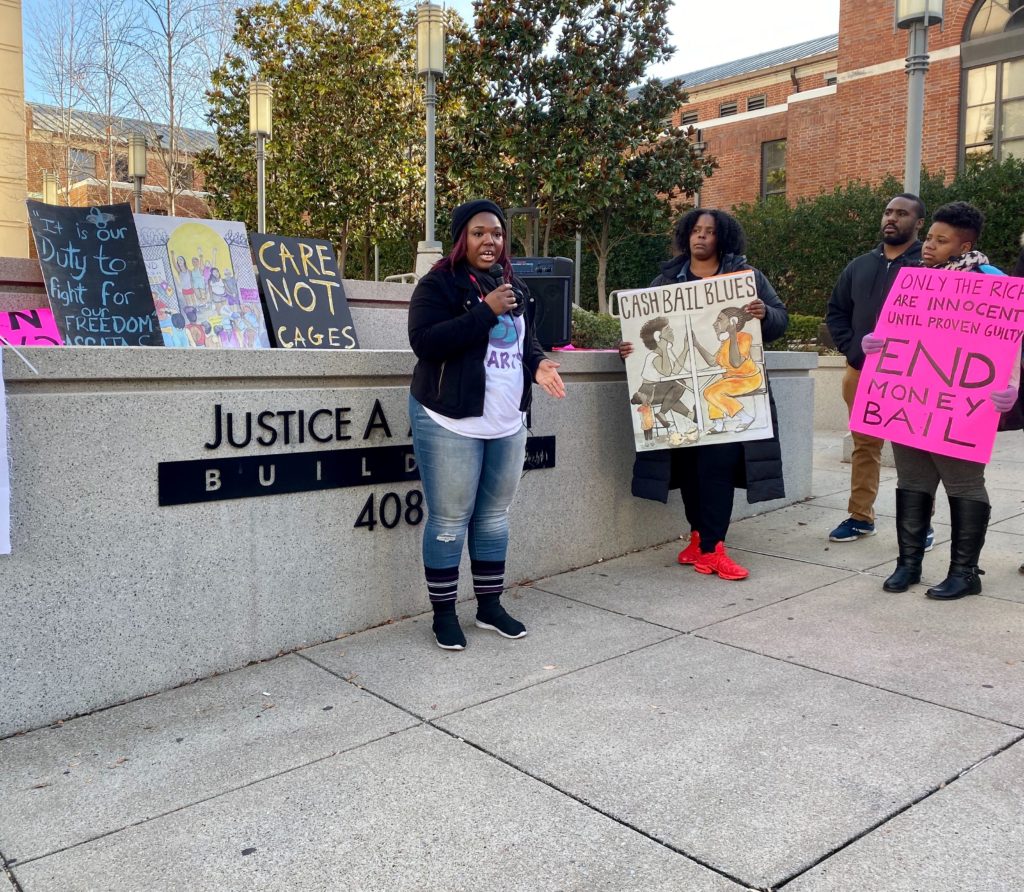
Many people arrested in Davidson County are not in the room when a judge sets their bail. That’s according a report released last week by a group of Nashville activists who want the city to change the way it jails people before trial.
Members of Southerners on New Ground observed more than 100 bail hearings over the course of 61 days in February and March. The authors admit that their sample is limited. The Davidson County courts handle thousands of cases a year. But in two months of court watching, they noticed some patterns, including inmates frequently being videoconferenced or even absent during bail hearings.
For criminal justice reform advocate Aniya Wiley, that rings true. She was locked in a jail cell when a judge at the Davidson County night court decided she’d have to pay $100,000 to be released.
The charges against her were ultimately dropped. But she sat in jail for four years awaiting trial, because she didn’t have the money.
“We are not able to attend our own bail hearings,” Wiley said at a press conference outside the downtown courthouse Thursday morning. “We’re not even able to, you know, advocate for ourselves, saying, ‘Hey, we can’t afford this bond. Can we pay this much?'”
It’s not the first call for bail reform in Nashville. Last year, the sheriff’s office started releasing more people pretrial after the national advocacy group Civil Rights Corps threatened to sue the city for discriminating against poor defendants.
They found that Davidson County jails 60% of people accused of minor crimes before they even have the chance to argue their case in court. In New York City, the rate is only 3%.
Nashville’s reliance on pretrial detention follows a statewide trend. The number of people jailed before trial in Tennessee grew by 336% between 1991 and 2018, according to nonpartisan policy research center the Sycamore Institute.
Davidson County has made some progress in recent years. In 2018, the sheriff’s office released nearly 1,400 people from jail without a cash bail, compared to about 600 in 2017. And the number of people accused of misdemeanors who spent more than 24 hours in jail fell by 32% between 2016 and 2018, according to data provided by the sheriff.
But the authors of the new report hope the city will go a step further. They want the city to rely less on money bail and more on alternatives to pretrial incarceration, like community-based rehabilitation programs.
“We’re supposed to be innocent until proven guilty,” says Gloria Berkeley, whose 16-year-old son was held on a $200,000 bail. “But you are saying that these guys and women are guilty until proven whatever. And it’s not fair. It’s just not freaking fair.”
Samantha Max is a Report for America corps member.

